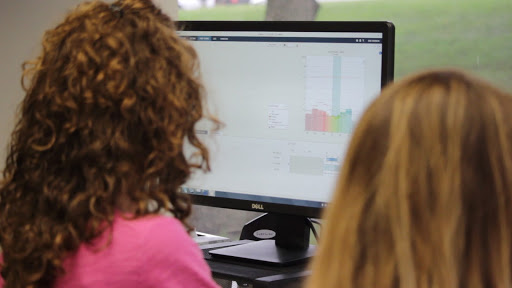Determining the best hearing aid technology for each individual patient is a complex process which takes the patient’s comprehensive hearing evaluation, health history, lifestyle, personal listening needs and budget into consideration.
Why See an Audiologist?
Because there are literally hundreds of hearing aids available with a wide variety of features, the audiologist you work with should be familiar with different brands, styles and levels of technology. This ensures that you receive a recommendation custom-tailored to your needs.
An audiologist can use advanced diagnostic testing to determine your type of hearing loss, and can use this information to determine the best hearing aid solution for your specific needs and budget. In fact, a recent study confirmed that individuals who work with an audiologist are more satisfied with their hearing aids.
In addition, hearing aids are medical devices regulated by the Food and Drug Administration (FDA), and they must be recommended, prescribed, and fit by licensed professionals. This standard is in place to protect the individual with hearing loss.
How to Choose a Doctoral Level Audiologist
To be certain you receive the best recommendations for your hearing, see a doctoral-level audiologist. Audiologists receive extensive education in hearing and balance disorders. These professionals have earned postgraduate masters and/or doctoral degrees. A doctoral degree is now required for graduates practicing after 2012. Look for the initials Au.D., (Doctor of Audiology – clinical degree); or Ph.D. (Doctor of Philosophy – research and/or clinical research degree); to designate doctoral training.
Doctoral-level audiologists are experts in:
- Providing comprehensive hearing evaluations
- Recommending, fitting, servicing, and adjusting hearing aids
- Recommending and providing assistive listening devices (products to enhance telephone conversations, television viewing, etc.)
- Diagnosing and addressing dizziness/balance disorders
- Providing tinnitus evaluation, consultation, management and FDA-cleared options
- Providing education regarding the effects of noise on hearing and prevention of hearing loss, along with recommending and fitting hearing protection
- Delivering counseling and aural rehabilitation (counseling, education, auditory training/exercises)
- Making medical referrals to a physician when appropriate for issues such as ear pain, drainage from the ear, sudden hearing loss, cochlear implantation, medical conditions, etc.
What to Expect from an Audiologist
A reputable audiologist will provide you with a written recommendation and estimate for a hearing aid solution.
You also should expect to receive at least a 30-day trial period to determine if you are benefiting from hearing aids. Associated Audiologists offers an extended 45-day trial period.
The audiologist you work with should use real-ear measurement to fit your new hearing aids and to ensure that you are receiving the best benefit from the technology. Real-ear measurement is a scientific and objective way to find out if your hearing aids are performing the best they can for you.
What Is Real-Ear Measurement?
A real-ear measurement involves placing a thin probe microphone in your outer ear while you wear your hearing aid to measure how it is responding. It takes into account the size and shape of your ear, which can also dramatically affect how your hearing aid needs to be set.
These tests are performed using a probe-microphone and real-ear measurement software, with the results showing graphs of what your hearing aid prescription should be compared to how well your hearing aids are actually performing.
Many hearing aid dispensers and audiologists use factory default settings from the manufacturer when dispensing hearing aids. Only 20 to 30 percent take the time to use real-ear measurement.
And, be sure your audiologist schedules follow-up appointments with you in advance. This ensures that your hearing and your hearing aids receive attention and adjustments on an ongoing basis.
Associated Audiologists only employs doctoral-level audiologists in our seven convenient locations.



